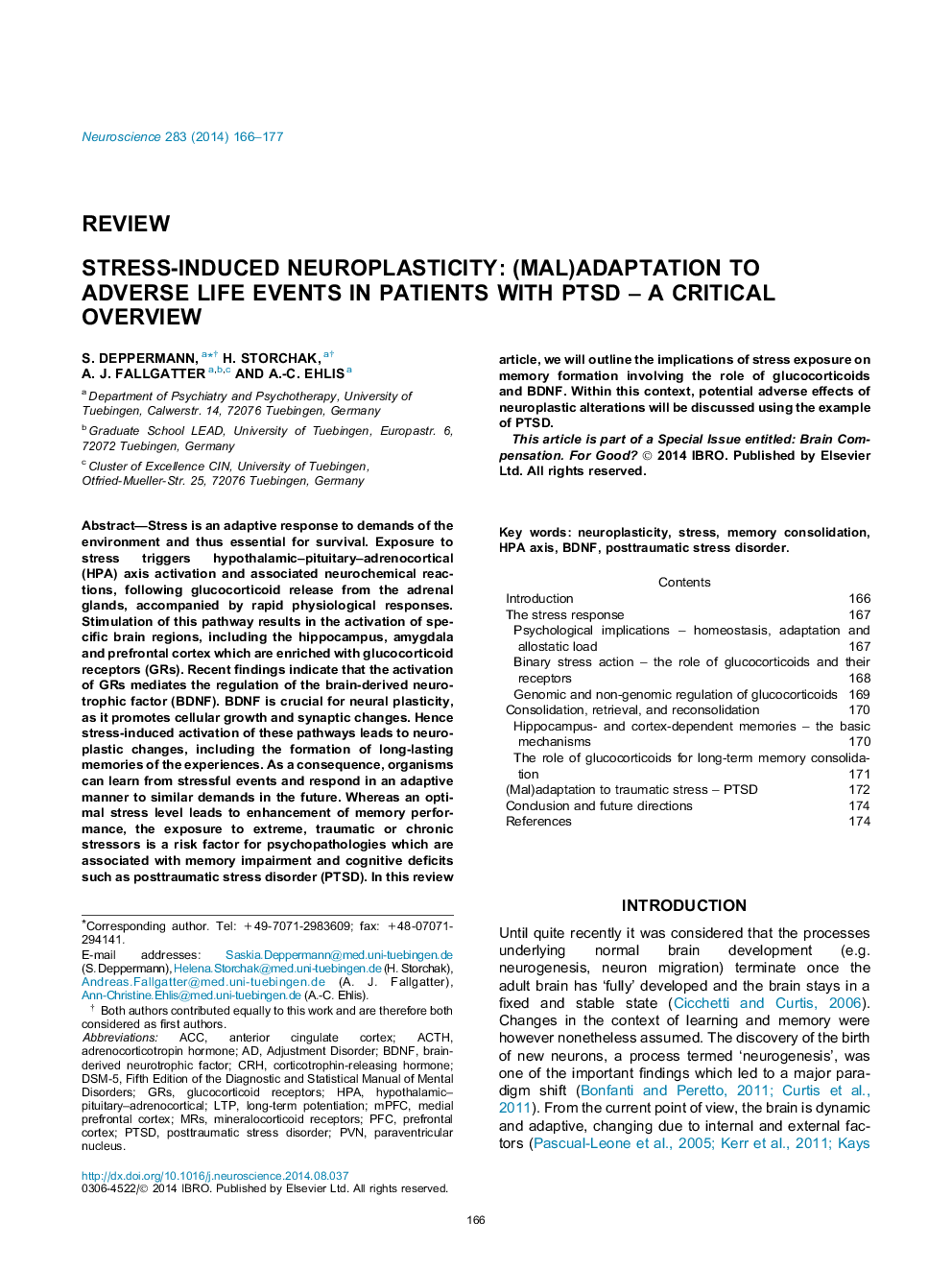| کد مقاله | کد نشریه | سال انتشار | مقاله انگلیسی | نسخه تمام متن |
|---|---|---|---|---|
| 6272815 | 1614793 | 2014 | 12 صفحه PDF | دانلود رایگان |

- Neuroplasticity plays a crucial role for the adaptation to different environmental conditions.
- Stress is one of the most important promoters to induce neuroplastic alterations in order to maintain homeostasis.
- Even though initially adaptive, stress-induced changes may have adverse effects.
- Implications of maladaptive neuroplastic alteration after stress exposure will be discussed using the example of PTSD.
Stress is an adaptive response to demands of the environment and thus essential for survival. Exposure to stress triggers hypothalamic-pituitary-adrenocortical (HPA) axis activation and associated neurochemical reactions, following glucocorticoid release from the adrenal glands, accompanied by rapid physiological responses. Stimulation of this pathway results in the activation of specific brain regions, including the hippocampus, amygdala and prefrontal cortex which are enriched with glucocorticoid receptors (GRs). Recent findings indicate that the activation of GRs mediates the regulation of the brain-derived neurotrophic factor (BDNF). BDNF is crucial for neural plasticity, as it promotes cellular growth and synaptic changes. Hence stress-induced activation of these pathways leads to neuroplastic changes, including the formation of long-lasting memories of the experiences. As a consequence, organisms can learn from stressful events and respond in an adaptive manner to similar demands in the future. Whereas an optimal stress level leads to enhancement of memory performance, the exposure to extreme, traumatic or chronic stressors is a risk factor for psychopathologies which are associated with memory impairment and cognitive deficits such as posttraumatic stress disorder (PTSD). In this review article, we will outline the implications of stress exposure on memory formation involving the role of glucocorticoids and BDNF. Within this context, potential adverse effects of neuroplastic alterations will be discussed using the example of PTSD.
Journal: Neuroscience - Volume 283, 26 December 2014, Pages 166-177